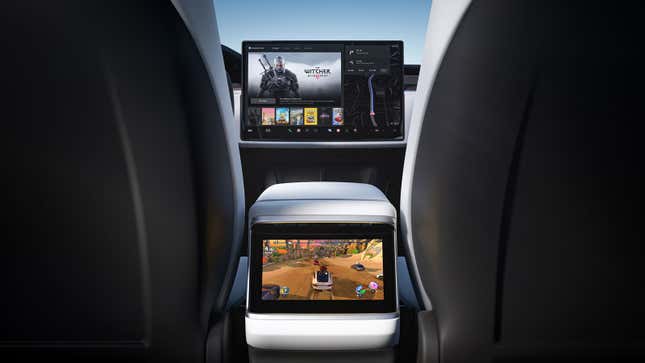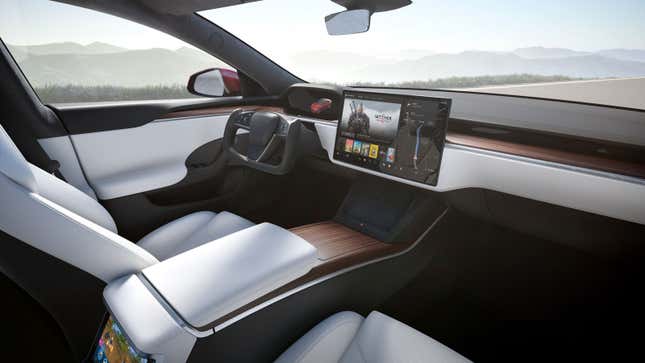
It’s been almost a year since we first started talking about how passengers can play video games on the center console screen in their Teslas. And now, the National Highway Traffic Safety Administration (NHTSA) is has come around to the idea that maybe that’s bad.
The feature, called Passenger Play, transforms the gaping screen in the front of your Tesla Model 3, S, Y or X into a traveling gaming rig. The system can load games from the Tesla Arcade library, such as Cuphead. And in the months since its debut, Tesla has added a host of new games to the infotainment systems.
This included the company’s latest software patch for its cars, which The Verge reports has begun rolling out to drivers.
While Tesla hasn’t quite delivered on its promise to bring games like The Witcher 3 and Cyberpunk 2077 to its cars just yet, it has instead brought Sudoku and arcade classic Sonic the Hedgehog to the platform.

As The Verge reports:
“There are a number of less essential and more fun inclusions in the update. TikTok videos can now be watched directly from the car’s touchscreen via Tesla Theater, and Tesla Arcade has been updated with new games like the original Sonic the Hedgehog (announced earlier this month) and Sudoku. It’s probably best to save these for when the car is stationary, although controversially they’re also playable by passengers while a vehicle is in motion.”
Apparently, Tesla has also rolled out a “light show” feature, which will make your “Tesla dance to a choreographed light show any time of year”, according to release notes shared on Reddit.
But this is Tesla, so it isn’t all fun and games for the electric car maker.
About the same time as Tesla rolled out the software update to cars, the NHTSA announced it was investigating the feature as it “may distract the driver and increase the risk of a crash”.
The NHTSA has opened a preliminary action to “evaluate the driver distraction potential of Tesla Passenger Play while the vehicle is being driven”. The evaluation follows a Vehicle Owner Questionnaire received by the NHTSA that confirmed this functionality has been on Tesla cars since December 2020.
The investigation affects more than 580,000 Tesla vehicles sold since 2017, including is Model 3, S, Y or X cars.